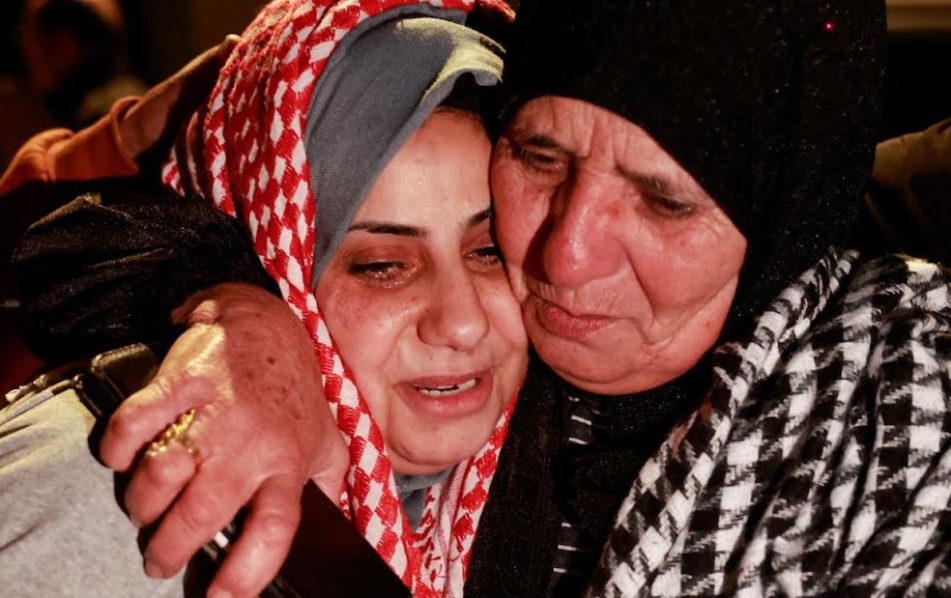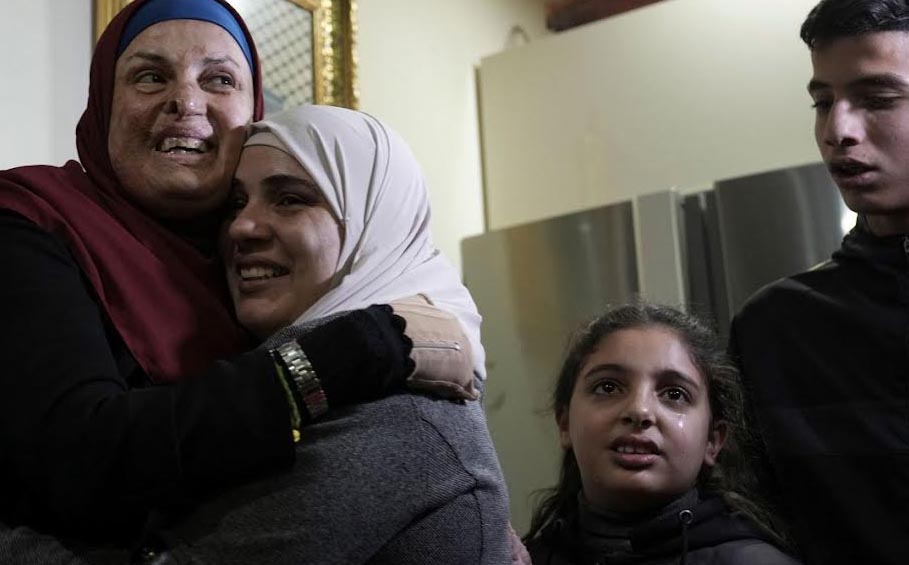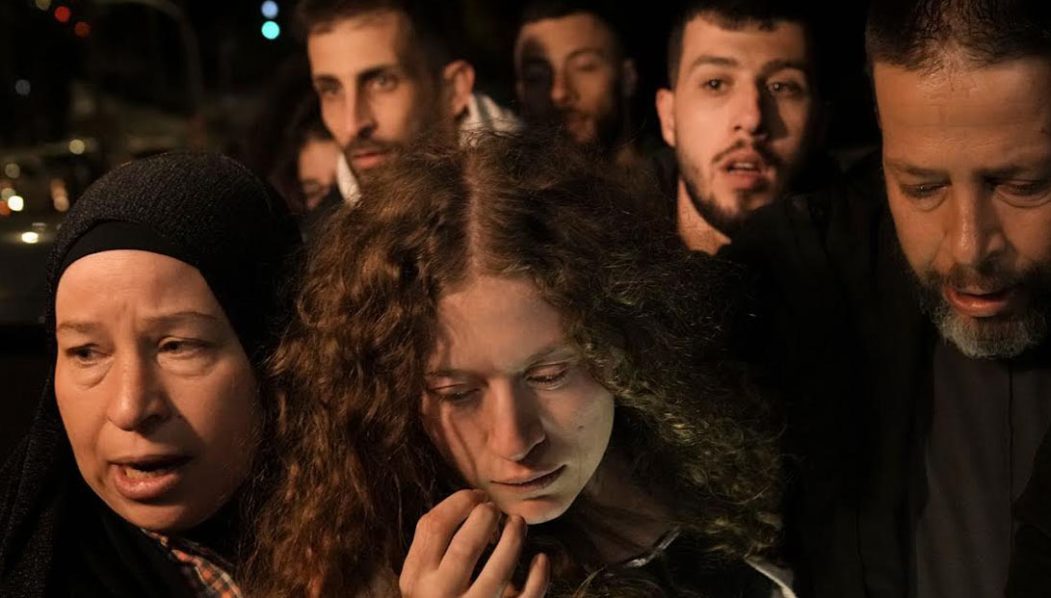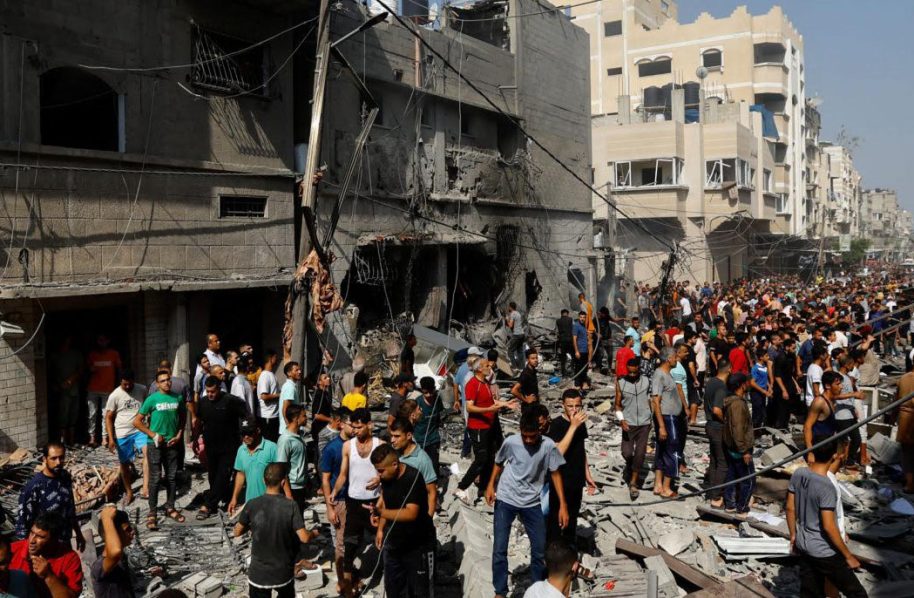
• Two-State approach is only solution to crisis
• Israel not prepared to return to international boundaries before the six-day war — Akinterinwa
• At the UN, there are vested interests being observed, protected, Onor insists
• Truce must become ceasefire, says Palestinian minister of foreign affairs and expatriates
The escalating humanitarian crisis resulting from Israel-Hamas war since the nation of Israel implemented a complete blockade on the Gaza Strip, no doubt, has underscored the need for a holistic settlement of the crisis. The recent swap deal brokered by Qatar, Egypt and the American government is seen as a desperate attempt to foist an agenda and definitely not aimed at a true resolution. OLUDARE RICHARD examines issues surrounding the swap deal, complicated international politics and of what relevance is a temporary ceasefire for prisoner exchanges while the main issues for resolution remain unaddressed, especially the longstanding call for a two-state resolution?
When world leaders feted Qatar for brokering a truce between Israel and Hamas, its negotiators had secretly expressed fear that the mediation efforts would collapse before it even started. The eventual positive result made European leaders and diplomats to welcome the new agreement for a humanitarian pause in Gaza.
Before the truce, Israel’s military siege on the Gaza Strip had resulted in a 90 per cent drop in electricity supply, impacting hospital power supplies, sewage plants, and shutting down the desalination plants that provide drinking water.
Also, there had been reported widespread outbreaks of diseases across Gaza with heavy bombardments resulting in catastrophic damage to infrastructure.
The one week long Qatar-mediated temporary humanitarian truce, while it lasted, provided a much-needed aid delivered to Gaza Strip as 200 aid trucks entered Gaza via Egypt’s Rafah border crossing, but people in Gaza said the ceasefire made little difference to the displaced.
Authorities in Gaza said since October 7, 2023, when Israel launched the military campaign, over 15,000 people, including 6,150 children and 4,000 women have been killed .
Over 1.5 million people in Gaza are said to be internally displaced, including about 778,000 IDPs who are staying in at least 154 UNRWA shelters.
The number of IDPs in the south continues to increase, with UNRWA sheltering 627,000 people in 97 facilities, three of which were recently opened in Rafah. UNRWA shelters are accommodating far more people than their intended capacity.
Following the resumption of bombardments by the State of Israel, the point of the prisoner exchange amid the humanitarian pause remains controversial.
The number of prisoners exchanged before Israel resumed bombings early Friday morning is a far cry to the staggering number of prisoners in detention. Hamas and other Palestinian resistance factions claim to have enough prisoners to “empty Israeli prisons of all Palestinian detainees.”
The Palestinian Prisoners Club data indicates that Israel holds approximately 7,000 prisoners, including 200 children, 78 women, and hundreds of sick and injured individuals.
 Over the years, exchange of prisoners has remained a feature of the Middle East politics. On May 20, 1985, Israel conducted a swap deal with the Popular Front for the Liberation of Palestine (PFLP), known as Operation’ Galilee,’ in which it released 1,155 Palestinian and Lebanese prisoners from its jails in exchange for three Israeli soldiers held by the PFLP.
Over the years, exchange of prisoners has remained a feature of the Middle East politics. On May 20, 1985, Israel conducted a swap deal with the Popular Front for the Liberation of Palestine (PFLP), known as Operation’ Galilee,’ in which it released 1,155 Palestinian and Lebanese prisoners from its jails in exchange for three Israeli soldiers held by the PFLP.
In early October 2009, Israel released 20 Palestinian female prisoners from the West Bank and Gaza in exchange for obtaining a recently recorded video lasting two minutes that featured the Israeli soldier Gilad Shalit, captured by Palestinian resistance factions on June 25, 2006.
Also on Oct 11, 2011 Israel freed 1,027 Palestinian prisoners in a major swap, securing the release of soldier Gilad Shalit. Hamas named the operation (Faithful to the Free) ‘Wafaa Al-Ahrar’, while Israel dubbed it ‘Closing the Time’.
During an intensive meeting of the UN Security Council in New York on the crisis, the UN chief said the world must not look away from the suffering of civilians in Gaza. “The people of Gaza are in the midst of an epic humanitarian catastrophe before the eyes of the world. We must not look away,” he said.
The Security Council resolution called on all parties to refrain from depriving the civilian population in the Gaza Strip of basic services and humanitarian assistance indispensable to their survival, consistent with international humanitarian law, he said “much, much more is required to begin to address human needs in Gaza.”
The UN Security Council meeting was the first open meeting since the 15-member body passed a resolution mid-November, and the first where foreign ministers are weighing in.
During the UNSC meeting, Russia’s Ambassador said a real ceasefire is needed and “the Council will need to make a decision on further steps,” including what observers to send to the conflict area and which UN contingent will be involved.
Riyad Al-Maliki, Minister of Foreign Affairs and Expatriates of the Observer State of Palestine, said a truce must become a ceasefire.
“This is not a war this is a carnage that no one can justify. It must be brought to an end. People must be allowed to go back to their homes,” Al-Maliki added. “This madness must be brought to an end. It is time for peace.”
Prof. Bola Akinterinwa, a professor of international relations at the Achievers University, Owo, Ondo State, said both the United Nations, Egypt, even the Gazans are not at all serious stakeholders, because he believes their intervention is a reflection of dishonesty.
Prof. Akinterinwa is of the opinion that what the mediators tried to do with the swap did not in any case address the most critical issue in the Israeli-Hamas/Palestine conundrum.
 “What was the position of the UN when Israel said it was going out for the total destruction of Hamas? I’m not unaware that Hamas launched an attack killing about 1200/1400 people but those who came to this point of view look at it as unprovoked and that Israel’s reaction falls within legitimate self defense.
“What was the position of the UN when Israel said it was going out for the total destruction of Hamas? I’m not unaware that Hamas launched an attack killing about 1200/1400 people but those who came to this point of view look at it as unprovoked and that Israel’s reaction falls within legitimate self defense.
“Those who argue like this, particularly, the US, dishonestly refused to acknowledge that the war between Israel on one hand and the Palestine on the other hand, particularly, the Gazans, dates back not just to October 7 and not even the Yom Kippur war or to the most immediate coastal factors in 1957. But particularly in the policies put in place following the November 2, 1917 declaration by the British Prime Minister, William Balfour, in which he said the British would provide a homeland for the Israelis and for the Palestinians. That’s the Genesis of the problem.
“Why is it that since then, particularly since the creation of the State of Israel on May 14, 1948, why has there not been any meaningful solution to follow?
“Why is it that the Two-State solution has been difficult to provide? What is the policy attitude of Egypt in this particular matter?”
He questioned the position of the UN on the refusal of the Palestinians to recognise the establishment of the creation of Israel in 1948, promising to push the Israelis to the seaside.
“Now, the UN has said on UN Resolution 572 adopted by the UNGA, which has asked Israel to withdraw from the occupied territories by Israel from 1957. Now, Israel has refused up till today. Israel has been using force to occupy Palestinian territory.
“The international law is clear on this, which states clearly that under no circumstance should any occupied state confiscate the territory they occupy. But the beauty of it all and also the most disturbing aspect is that Israel is openly supported by the US,” he said.
He pointed out that on one hand, the American government wants to be a mediator in the resolution of the Israeli-Palestinian conflict but the same Americans also have partisan interest especially with the active and open support of Israel. Also, whenever the UN moves to condemn Israel, the American government would block it with veto.
Akinterinwa noted that the position of International law in situations of mediation is that before anyone can be a mediator in conflict resolution, the entity or personality must be acceptable to all parties involved. However, parties in this case are divided on the participation of the American government as a mediating party.
The US is taking the initiative in its own capacity because the United Nations itself does not have the capacity, Akinterinwa said. He explained a concept in the participation of the United States as a country view by other countries as a free willing state; ready to commit their resources and troops in the maintenance of international peace and security.
“So, anyone now coming to talk about solutions in whatever form cannot be honest. The issue is that Israel itself is not ready for any two-state solution. Israel is not prepared to allow Jerusalem to be the capital of the State of Palestine.

“Israel is interested in creating a state for the Jews and the Jews only but the State of Israel was carved out of Palestine in 1948. So, these are the critical issues. I think that for as long as Israel will not be prepared to return to the international boundaries before the Six-day war of 1967, the likelihood of any enduring peace is removed.
“As long as Israel would not accept the two-state solution, there can never be peace. Now, Israel has killed more than 15,000 people, the issue is not about the killings, but the mere fact that the Israeli addressed and carried out its military conspiracy indiscriminately,” he said.
He noted that while International law protects non-combatants, civilians, how would Israel explain the killing of innocent children under the guise of legitimate self-defence?
He said the United States itself doesn’t bother about this aspect. “They’re the ones preaching humanitarian sermons and democratic freedom but now, we can see that America is a country where the Jews hold strategic positions in government.
“So, America, as at today, supported and still supports Israelis attitude to the war. There was a four-day ceasefire. Even though Israel said it wants to renew the war following the truce effort, the question we must now ask is that what is the purpose of the swap we’re talking about? Is this just policy that has no objective of ending any war between the Hamas and the Israelis in the foreseeable future?
“One additional fact is that international policies system is basically a system of conflicting national interest and when you’re faced with conflicting interests, you don’t care whether innocent people die. This is the bitterness in it. It is all politics and in this particular situation, it would be good for the government of Nigeria, particularly, for Tinubu diplomacy to begin to address current developments in the world,” he noted.
Senior Research Fellow at the Nigerian Institute of International Affairs, Dr. Kester Onor, expressing his view on the deal, said it favoured both sides of the divide because both the Israelis and the Hamas have exchanged prisoners. It was, therefore, a welcome development, though a temporary effort yet.
He said although with the global outrage in relation to the continuous bombing of the West Bank by Israel and the demonstrations that have followed, it is more likely than not that several countries are not in the consonance with the actions of the Israeli.
“However, we equally have to note that these actions were provoked by Hamas when they decided to invade Israel and attack both civilians and the Israeli military, especially at a time when they were finishing up with a spiritual exercise,” he noted.
Onor is also of the view that the two-state approach is the only solution to the Israeli-Palestine crisis. Where there are disagreements on realistic paths for resolution, however, he believes that the conflict would likely continue.
“Besides, when you look at Israel on one hand, you cannot deny that they are a global power. Even their military capabilities can meet challenges, regardless that they were caught off guard with the Hamas attack.
“We must also consider the strong affinity of the State of Israel with US, UK and France, you’ll realise with the Zionist movement that they have a strong level of participation within the order of world powers and have been able to gather support of these world powers,” he said.
Onor agreed that one of the objectives of the attack by Hamas was to thwart the progress of Israel with the Arab nations because negotiations have been leaning towards positive outcomes beforehand. He said the Hamas wants to ensure such treaty would not see the light of the day. There’s also the allegation that Hamas doesn’t want to see Israel living in peace with other Middle East nations.
In avoidance of rhetoric gainsaying and in examining empirical evidence available, Onor said it is clear that the situation the Palestinians have been subjected to is not palatable in itself. The Palestinians have been exposed to constant threats and crisis and oppressions, which brings up the question of the United Nations.
For Prof. Femi Abbas of the University of Ibadan, the deal is a welcome development that will push for eventual recognition in that Israel had never considered Palestinians as human beings enough to be negotiated with.
He said Israel is surprised that the war has lasted over two months, having thought that with their strength and the support of the Americans, it would be a walkover in a matter of few days.
“Again, the reactions of many countries baffled them and these put together, forced them to accept the swap deal. Some of the Israelis swapped are important personalities that could not be left to languish in Palestinian detention,” he said.
Meanwhile, the United States has said it is in agreement with the two-state solution. US Ambassador, Linda Thomas-Greenfield, said: “We need a two-state solution. This is the only way to end this cycle of violence once and for all.”
She added, however, that much more humanitarian assistance is needed as well as civilian protection.
“We know Hamas continues to use people as human shields, but this does not lessen Israel’s responsibility to protect civilians under international humanitarian law,” she said.






